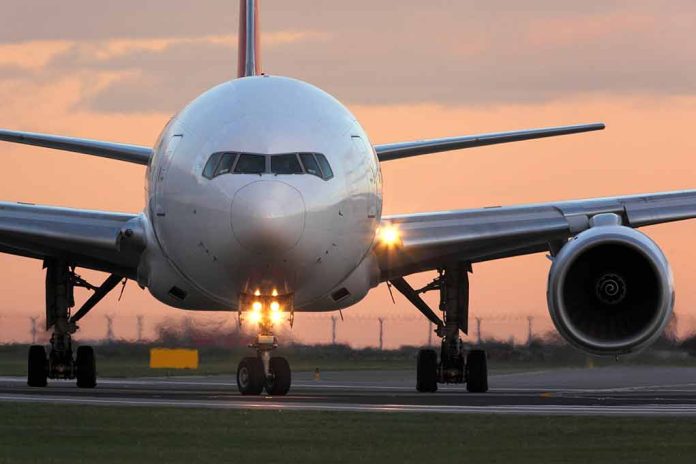
Boeing has sure been in the news a lot lately. While safety issues are of critical importance, it’s important to remember that none of these are small details. Issues with Boeing have caused a series of serious incidents that have claimed the lives of 346 people.
Boeing has recently agreed to enter a guilty plea in response to fraud charges that take a cold, hard look at the design and certification of the 737 MAX. Considering Boeing is one of the biggest aerospace manufacturers in the country, a criminal conviction has left many with some very serious questions. Legal implications aside, we can’t help but take a moment to ponder just how significant the impact of corporate negligence can be on human life.
Boeing’s Guilty Plea: A Price to Pay for Deception
On July 8, 2024, Boeing, a cornerstone of American industry, agreed to plead guilty to conspiracy to defraud the United States by deceiving the Federal Aviation Administration (FAA) regarding the MCAS flight control software on its 737 MAX aircraft. This decision marks a clear admission by the company that it concealed critical information about the safety of its planes, ultimately contributing to the fatal crashes.
The Price of Guilt
Boeing will pay a $243.6 million fine, matching the maximum allowable penalty under the existing settlement, and will be on court-supervised probation for three years under the terms of the agreement. This is significant as it brings the total fine paid by Boeing to $487.2 million, which is the legal maximum for the fraud charge. The company will also be required to invest at least $455 million in compliance and safety programs over the next three years.
Criticisms of a “Sweetheart” Deal
The plea agreement has been heavily criticized by families of the crash victims, who view it as insufficient in holding Boeing accountable for the lives lost. Many families believe the penalties do not match the severity of the crimes committed, and they are demanding greater accountability and financial repercussions.
Competing Interests: Federal Judge Approval and the Impact on Government Contracts
The plea deal is contingent on approval by a federal judge, who has significant discretion over the terms of the agreement. Despite Boeing’s criminal conviction, its unique position as a major player in government contracts may limit the impact on its business, as federal agencies often grant exceptions to contractors in “compelling national interest” cases, such as in the 2006 instance where Boeing was allowed to continue competing for contracts despite admitting to stealing information.
Reputation and Compliance
Boeing was initially shielded from criminal prosecution by a deferred prosecution agreement, but it failed to implement a robust compliance and ethics program, leading to the breach of that agreement. Now, the company must work to restore public trust by adhering to the terms of the plea agreement and addressing ongoing safety issues. Independent compliance monitors will oversee Boeing’s progress and submit regular reports to the court.
Challenges Ahead
Families of the victims plan to challenge the deal in court, seeking a more stringent penalty and greater accountability from the company. This potential challenge underscores the ongoing struggle for justice and accountability in the aftermath of these tragic events.
Conclusion: The Human Cost of Corporate Negligence
Boeing’s guilty plea serves as a stark reminder of the devastating consequences of corporate deception. While the legal fallout is significant, the true tragedy lies in the 346 lives lost due to Boeing’s actions. As we move forward, it is essential to examine the systemic failures that led to these incidents to ensure that justice is served and that such catastrophes are never again allowed to occur.
Boeing’s legal troubles are an important reminder to corporate America. The people can and will demand transparency and hold corporations accountable for their actions.
Let us know what you think. Should Boeing be allowed to continue operations? Is the deal too light? Sound off via email and let us know what you think.
More from Around the Web:
Peter Greenberg examines the deal:
What does #Boeing’s plea deal entail? This is what put me in a bad mood…
Stay tuned for my next Global Travel Update from Grand Canyon West on Wednesday, July 17th at 6 pm PT! Tune in LIVE right here. pic.twitter.com/5mw3xhYrRr
— Peter S. Greenberg (@PeterSGreenberg) July 12, 2024
Seems a bit like business as usual at Boeing:
#BREAKING: Boeing nears securing a significant sale of 777X jets to Korean Air, with the deal potentially involving 20 to 30 aircraft. Valued between $4 billion and $6 billion, this transaction could be finalize as early as the Farnborough Airshow.pic.twitter.com/K7gZ4A5LzE
— Boeing 777X (@b777xlovers) July 12, 2024
Here’s what professor Mark STeinberg has to say:
Professor Marc Steinberg was interviewed by @JamalAndress of @scrippsnews regarding the Department of Justice offering Boeing a plea deal.
📰 Read here: https://t.co/Tj6w5eQwNF
📺 Watch here: https://t.co/8odBWBTCcT pic.twitter.com/8XAabkFeKc
— SMU Dedman School of Law (@SMULawSchool) July 11, 2024





